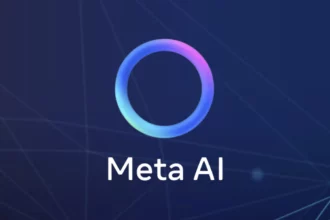Is Bing Copilot the future of digital assistance, or does ChatGPT still reign supreme? As these two technological titans battle for supremacy in the AI landscape, their unique features and experiences offer a fascinating glimpse into our evolving relationship with machines. Bing Copilot nudges users with its multifunctional prowess—from crafting solid content to generating vivid images—while ChatGPT captivates with its elaborate narratives and creativity. As we peel back the layers of these platforms, we’ll uncover not just their differences, but how each fulfills distinct needs in our increasingly digital lives. Buckle up; it’s going to be an enlightening ride!
- Bing Copilot and ChatGPT are based on the same language model, but they cater to different needs: Copilot focuses on delivering informational responses, while ChatGPT often provides longer, more creative answers.
- Copilot is designed for a multi-functional experience, allowing users to compose content, generate images, and summarize complex questions all in one interface.
- The difference in response quality between Copilot and ChatGPT varies based on the type of interaction; the context of use is crucial to determining which one is more effective.
- Bing Copilot is integrated into search functionalities, giving it a unique advantage in providing real-time data compared to the isolated interface of ChatGPT.
- Despite their similarities, users may find that the specific features and integration of Copilot can enhance productivity in certain tasks, while ChatGPT may be preferred for more elaborate creative outputs.
- The rebranding of Bing Chat to Copilot in late 2023 signals a shift in focus towards a more integrated and advanced user experience compared to what was previously offered.
Table of Contents
ToggleComparing Bing Copilot and ChatGPT
The debate surrounding whether Bing Copilot is better than ChatGPT has sparked lively discussions, especially among users on the lookout for the perfect AI assistant tailored for their requirements. Though both platforms tap into OpenAI’s language models, they operate within different frameworks and user experiences that shape how they serve their users.
Efficiency can be a decisive factor here.
For instance, when I tested Copilot, it provided quick responses to direct information requests and adeptly generated summaries and visual content in one go. In contrast, while ChatGPT often delivers longer and more creative responses, this can sometimes lead to a slower output when sourcing specific articles from the web.
So if you need fast, concise information, Copilot could have the upper hand.
Functionality wise, Copilot integrates tightly with Microsoft’s varied suite of tools, which means it’s designed to complement apps like Word and Excel seamlessly.
This built-in capability allows users to not only brainstorm ideas but also execute them within familiar software environments. ChatGPT, on the other hand, offers an isolated interface tailored more for conversational exchanges and broader creative tasks—ideal for users seeking a standalone dialogue-rich experience.
When it comes to coding capabilities, both platforms show promise but shine in different situations. ChatGPT tends to handle complex code generation and troubleshooting because of its creative depth; however, Copilot’s design is fine-tuned for providing practical code snippets quickly during software development tasks. If you’re a coder looking for quick implementations rather than brainstorming complex algorithms, Copilot might serve you better.
User experience represents another crucial element in this comparison.
Copilot’s streamlined approach could appeal more to those who prioritize seamless integration within their work processes while handling specific queries efficiently.
Meanwhile, ChatGPT offers a richer conversational flow that can support in-depth discussions or brainstorming sessions—perfect for users who enjoy exploring ideas from multiple angles.
Lastly, security and privacy settings play a significant role in determining which platform is preferable based on unique requirements.
Microsoft has emphasized enterprise-level security protocols with Copilot; therefore businesses handling sensitive data may gravitate toward it. Conversely, ChatGPT assures data privacy but operates in a less corporate-centric environment.
In wrapping up this exploration of features and functionalities between Bing Copilot and ChatGPT, remember that your choice should align with your specific goals: Are you after speed and efficiency or depth of interaction? Are you integrating with Microsoft products or seeking a versatile standalone tool? Understanding these nuances can guide you toward choosing the best AI assistant fit for your needs.
Integration into Existing Ecosystems
Bing Copilot’s integration with the Microsoft ecosystem is a game-changer for businesses.
It’s like having a personal assistant that knows your work flow, offering real-time assistance within your familiar tools – Word, Outlook, Teams, PowerPoint, you name it! This seamless integration eliminates the need to switch between platforms, allowing you to leverage AI’s power without interrupting your workflow.
Imagine drafting a complex email in Outlook, and Copilot instantly suggests concise, professional phrasing, or generating a captivating presentation in PowerPoint with just a few prompts. It’s a productivity dream come true.
Now, ChatGPT, while a fantastic conversational partner, is more of a standalone tool. It doesn’t seamlessly integrate with specific applications like Copilot.
This approach might be perfect for brainstorming sessions or indulging in creative dialogues, but it lacks the direct productivity-boosting capabilities that Copilot offers. It’s like having a brilliant friend who can share insightful thoughts but can’t help you organize your desk or write your reports.
So, which one is better? It truly depends on what you need. If you’re looking for a productivity powerhouse that works hand-in-hand with your existing Microsoft tools, Copilot is your best bet. But if you prioritize engaging conversations and exploring ideas from multiple angles, ChatGPT’s standalone nature might be more appealing. Ultimately, the choice boils down to your individual needs and how you envision using AI to enhance your work and life.
Coding Capabilities
- Writing basic code: ChatGPT is great at helping developers solve coding problems, although its output isn’t always 100% accurate.
One notable advantage of Microsoft Copilot is its seamless integration within the Microsoft ecosystem.
Both Copilot and ChatGPT showcase impressive coding capabilities, yet their effectiveness hinges on the nature of the coding tasks at hand. For example, if you’re deep into a jam-packed code sprint where every second counts, Copilot tends to shine.
Its ability to deliver real-time suggestions directly in your coding environment allows for smooth sailing through even the most complex projects. This integration not only boosts productivity but also minimizes context-switching, which can be a major efficiency killer.
On the flip side, let’s not discount ChatGPT entirely! While it might not offer the immediacy that Copilot does in specific coding scenarios, it brings something valuable to the table: conversational engagement.
Imagine needing to brainstorm how to tackle a tricky coding problem or wanting advice on best practices—ChatGPT can provide thoughtful insights and explanations that might just ignite new ideas.
Moreover, while both tools can help with basic scripting and code troubleshooting, studies showcase that Codex (which powers Copilot) has been noted for its capacity in handling more intricate tasks with fewer errors compared to general chatbot outputs.
A steep learning curve exists for users transitioning between these tools; getting accustomed to how each aids differently in problem-solving can improve overall coding effectiveness.
So, while you might experience quicker iterations with Copilot during a real-time coding session, ChatGPT could be your go-to brainstorming partner when conceptualizing projects or debugging concepts.
Access to Recent Data
One of the most significant differences between Bing Copilot and ChatGPT is how they handle accessing and processing real-time information.
Bing Copilot has a direct connection to the internet, making it a powerhouse when it comes to providing up-to-date information and resources.
It’s like having a constantly-updated encyclopedia at your fingertips! This means it can answer questions, retrieve data, and even summarize web articles in real-time, giving you the latest information available.
ChatGPT, on the other hand, relies on its training data, which is a snapshot of information up to a certain point in time. While this data is vast, it doesn’t include the latest developments, news, or trends.
So, when it comes to seeking current news, events, or technical data, Bing Copilot might be the better choice. Its real-time access to information gives it a clear advantage in providing timely and accurate answers.
Think of it this way: Imagine you need to know the latest stock prices or the results of a just-concluded sporting event. Bing Copilot can access this information directly from the internet, providing you with the freshest data available. ChatGPT, however, might be limited to its knowledge cutoff date and might not have the most up-to-date information.
User Experience and Interface
Both Copilot and ChatGPT offer unique user experiences, with each platform catering to different preferences. While Copilot’s interface might seem a bit more cluttered, it provides a wider range of options for customization and control.
For instance, its diverse chat modes empower users to fine-tune responses, ensuring a more tailored experience. On the other hand, ChatGPT’s minimalist design prioritizes an uncluttered, intuitive experience.
The streamlined layout and straightforward organization of information make it easy for users to engage freely with the AI and navigate through ideas without visual distractions.
Ultimately, the choice between the two depends on individual preferences.
Some users might appreciate the added flexibility and customization of Copilot, while others might prefer the simplicity and visual clarity of ChatGPT. It’s like choosing between a well-equipped toolbox and a sleek, minimalist design.
Both serve their purpose effectively, but the ideal choice depends on your personal needs and how you prefer to interact with technology.
Strengths and Weaknesses
In brief, ChatGPT tends to provide longer, more creative responses, which might favor users needing elaborate design work or engaging storytelling. Those looking for concise, accurate information retrieval, particularly for productivity, are likely to find Microsoft Copilot more appealing.
With ChatGPT focusing mainly on conversation, it might miss the mark in factual responses, particularly with the GPT-3.5 model as it sometimes delivers subpar accuracy. Meanwhile, Copilot’s primary goal of delivering informational responses positions it as a reliable choice for business and educational applications.
User Scenarios for Optimal Performance
Determining which tool excels depends largely on user scenarios. If you’re a developer seeking interactive coding support, Bing Copilot is befitting due to its real-time assistance and coding context. However, if you are looking for more detailed explanations or creative writing assistance, ChatGPT may serve you better.
Additionally, for users embedded in the Microsoft ecosystem, the choice is clear: using Copilot can enhance existing workflows, making everyday tasks more manageable. Those not reliant on Microsoft tools may find that ChatGPT fits their narrative and creative needs more effectively.
Conclusion
The question remains: is Bing Copilot better than ChatGPT? It depends. Copilot’s seamless integration, internet access, and coding proficiency cater to a different audience than ChatGPT’s strengths in creative and longer-form textual generation. Ultimately, the best option lies in aligning the capabilities of these AI tools with your specific requirements, doing so can greatly enhance your productivity and creativity.
We invite you to share your experiences with either tool. Have you found one to have a distinct advantage in specific tasks? Let’s discuss!
FAQ & Questions
Is Bing Copilot fundamentally different from ChatGPT?
Despite both being based on similar language models, Bing Copilot and ChatGPT showcase distinct characteristics. Copilot delivers more succinct informational responses while ChatGPT tends to provide longer, more creative content. So, if you seek creativity and depth, ChatGPT might be your go-to. However, if you’re after straightforward, informative answers, Copilot shines.
What advantages does Microsoft Copilot have over ChatGPT?
Microsoft Copilot integrates seamlessly into widely-used Microsoft tools like Word, Outlook, and Teams, enhancing productivity for users ingrained in that ecosystem. Additionally, Copilot offers three distinct chat modes, while ChatGPT’s free version lacks conversational tone options. If you’re deep in the Microsoft realm, Copilot’s accessibility could fast-track your workflow.
How do Bing Copilot and ChatGPT handle web access?
Bing Copilot can swiftly retrieve real-time information thanks to its integration with the Bing search engine. In contrast, while ChatGPT also utilizes Bing for its browsing capabilities, it may take longer to fetch the required data. So, if quick comparisons or timely updates are what you seek, Copilot might have the edge.
Are both tools free to use, and do they have any monetization strategies?
Yes, both Bing Copilot and ChatGPT offer free versions for users. However, be aware that Microsoft Copilot may display sponsored results since it relies on ad revenue. This could impact the neutrality of the information you receive. If you’re looking for an unbiased experience, this is something to keep in mind when using Copilot.
How do the data access and information accuracy vary between the two?
Bing Copilot has access to up-to-date internet data, providing potentially more reliable answers to recent queries. Conversely, since ChatGPT generates responses using pre-existing data, the relevance and timeliness of its information could lag. For those who prioritize recent data over a creative touch, Copilot might be more beneficial.
Can Bing Copilot be considered a better tool for coding than ChatGPT?
Both Copilot and ChatGPT have robust capabilities for coding tasks, but the better choice depends on specific needs. If you require access to proprietary or copyrighted code, be mindful of Copilot’s integration with Microsoft tools. In general, evaluate your unique coding challenges to determine which assistant fits better for your projects.





